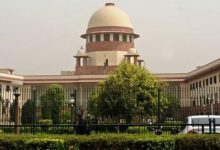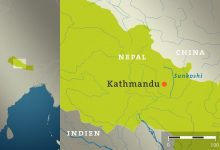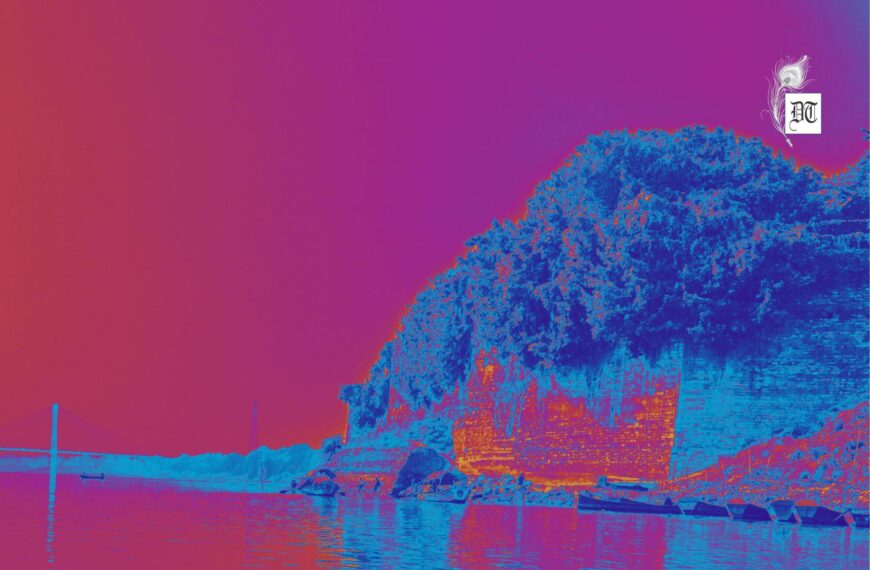The BJP is depending on the anti-incumbency as a result of unemployment, lack of infrastructure and improper implementation of the Seventh Pay Commission. The Congress, on the other hand, is trying hard to swing back to power in Meghalaya, with slim chances of winning in Nagaland and Tripura. Here’s an analysis, for Different Truths.
The most neglected northeastern region has come into focus in the political calculations of the BJP, the Congress and the regional parties in view of the ongoing Assembly elections to Meghalaya, Nagaland, and Tripura. For decades, successive governments at the Centre, often in collusion with their regional allies, had failed to develop the region. The resultant poverty, unemployment and criminal neglect of the region had become a hotbed for insurgency and violence. The three states have just gone to polls and the results are awaited on March 3, which would show whether the BJP surges forward.
Why does the BJP want to expand in the northeast?
Having peaked in the North, the saffron party is now eyeing the Northeast and the South for expansion. The region has traditionally been a Congress stronghold, as till 2016, the Congress-ruled five of the eight Northeastern states. Since Modi came to power, the BJP has wrested power in Assam, Arunachal Pradesh, and Manipur. Therefore, the current polls are a test for both the Congress that is struggling to survive and the BJP that is hoping to find a foothold in the region. After ousting the Congress in Assam in May 2016, the party took Arunachal Pradesh six months later, luring 43 Congress MLAs, including Chief Minister Pema Khandu. In March 2017, the BJP formed the government in Manipur even though the Congress emerged as the largest party in the polls. It has coalition partners heading governments in Nagaland (Naga People’s Front) and Sikkim (Sikkim Democratic Front), seeks to conquer the entire region by 2019.
Secondly, in the expansion map of the BJP, which is focused around 120 seats that it has never won before; the northeast is crucial as it has 25 Lok Sabha seats. Thirdly, the BJP has been making systematic efforts and formed the (NEDA) North East Democratic Alliance in 2016 for uniting the non-Congress governments in the region. This was part of the BJP’s efforts to spread its wings as a pan-national party. For this, the BJP has an alliance with the regional parties in the region instead of fighting with them. The BJP is also bonding with those outside the traditional vote banks by wooing the Christians, tribals and ethnic groups. As a concession, the BJP has informally promised that beef won’t be banned and the state’s culture won’t be interfered with if the party comes to power.
Interestingly, from an average three percent vote share of the BJP in the region, it went up to around 14 percent in the 2014 Lok Sabha elections. The BJP chief Amit Shah and Prime Minister Narendra Modi have visited the poll-bound states many times. To make the Northeast a ‘Gateway for Southeast Asia’ connecting it to Bangladesh, Myanmar and Bhutan, the Prime Minister has promised balanced development in the region, which includes a Rs 40,000 crore investment in road and power infrastructure, railway projects and small airports under the UDAN scheme.
However, the contradiction appears to be on the religious side. Nagaland, Mizoram, and Meghalaya are overwhelmingly Christian-majority states, while Assam, Manipur, and Tripura have significant tribal populations. Sikkim and Arunachal Pradesh have a large number of Buddhists. The latest issue of The Economist magazine has pointed out that the Hindu nationalist ruling party (BJP) is trying to win over Christian regionalists.
The BJP is depending on the anti-incumbency as a result of unemployment, lack of infrastructure and improper implementation of the Seventh Pay Commission. The Congress, on the other hand, is trying hard to swing back to power in Meghalaya, with slim chances of winning in Nagaland and Tripura.
Tripura, where the Left Front has been ruling since 1993, is where the BJP is hopeful of improvement. Even Chief Minister Manik Sarkar acknowledges that the BJP is the Left Front’s main challenger. The party had emerged in second in the three by-polls since 2015. The BJP is wooing Tripura’s 32 percent tribal population where the RSS has done good work. It has allied with the Indigenous People’s Front of Tripura (IPFT).
The Congress is struggling against depletion of its MLAs with defections while the BJP is buoyed by defections to its fold from the Congress and Trinamool Congress MLAs.
In Nagaland, the ruling Naga People’s Front (NPF) has unilaterally ended its alliance with the BJP recently. The party is depending on the National Democratic Progressive Party (NDPP), which has projected the ex-NPF chief minister Neiphiu Rio as its CM candidate. Nagaland suffers from lack of development and political corruption. The framework agreement of a Naga accord signed between New Delhi and the Manipur-based National Socialist Council of Nagalim (Isak-Muivah) in 2015 is creating some tension. Both parties will have to look for a viable coalition to win the state.
In Meghalaya, which has 74.59 percent Christians, the fight is between the Congress chief minister Mukul Sangma and Conrad Kongkal Sangma of the National People’s Party, an alliance partner of the BJP. Despite the charges of corruption, Chief Minister Mukul Sangma is confident of victory counting on the “stability card” in a state notorious for interrupted regimes. The United Democratic Party (UDP), the largest opposition group in Meghalaya, and independent MLAs might emerge as kingmakers.
Whoever wins or loses, there is an urgent need for developing the ‘Seven Sisters’ who have remained uncared. Stability and development are the two important needs of the region. The new governments should concentrate on this.
Kalyani Shankar
©IPA Service
Photo from the Internet
#SevenSisters #Government #Nagaland #UnitedDemocraticParty #BJP #CongressAndTrinamoolCongress #IPA #DifferentTruths





 By
By
 By
By

 By
By